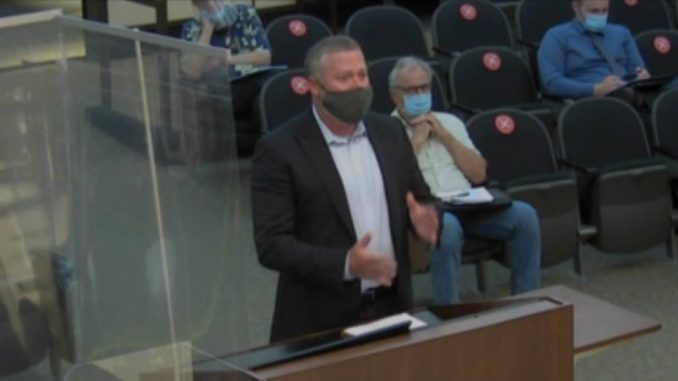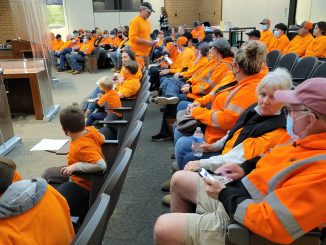
As the clock struck 6 p.m. Tuesday (June 1), the dais in Chico City Council chambers remained empty. Due to a late-running closed session, the meeting finally got underway shortly after 6:30 p.m.
That delay—as well as an impromptu break called by Mayor Andrew Coolidge when an unruly citizen refused to stop speaking after her allotted two minutes during business from the floor—upended the council’s attempts to make it through an ambitious agenda. In the end, scheduled discussion on whether to extend the city’s shelter crisis declaration—which expires June 30—was postponed, but the council at long last took a step closer to commercial cannabis in Chico.
Stops and starts
Last August, the council voted to approve rules to allow commercial cannabis dispensaries, which took effect last October. One prospective business owner—David Petersen—began the permitting process, which includes a 45-day waiting period. That process was halted on Dec. 8 by the then freshly seated conservative-majority council when member Sean Morgan asked for a review of how the businesses would benefit the city financially.
The permitting process remained on hold after further discussion on May 4, when the council directed city staff to look into Community Benefits Agreements. Under this model, businesses commit to contribute to economic and other efforts to benefit the greater community. As outlined in examples from other cities’ CBAs that were provided to council, these benefits—to be pitched by the applicants themselves—range from money given directly to public safety organizations (police and fire) to grants for artists to supporting recreational and educational programs.
Also at the May 4 meeting, Vice Mayor Kasey Reynolds moved to restart the permitting process for dispensaries on June 1, but keep it on hold for other cannabis businesses, such as manufacturing and testing facilities. She also put forth that the number of dispensaries allowed in the ordinance be reduced from four to three; and a tiered rewards system be established for applicants.
During public comment, Petersen—the sole applicant, in limbo since November—ran down the city’s already-established application process, which includes the waiting period, processing, multiple reviews, interviews with city staff and the public and more.
“All of that will hopefully result in conditional use permit or letter from the city, which is actually square one for the process to start at the state level,” Petersen said. He said that if the city restarted the process immediately, he’s still at least 18 months from opening his doors.
Some speakers, including some potential permit applicants, agreed with Petersen’s timeline. Others applauded the city’s ordinance, noting that it’s public safety focused and among the more conservative municipal commercial cannabis laws in the state, and the result of tremendous effort and compromise by the Cannabis Citizens Advisory Committee—a broad-based group of citizens, city and county staff and other community leaders who worked for roughly a year on the package.
During council discussion, Councilmember Alex Brown asked for clarification regarding Reynolds’ May 4 motion. City Attorney Vince Ewing confirmed the city could lower the amount of dispensaries according to the existing ordinance. Reynolds explained her tiered system shouldn’t affect the ability of local applicants to compete with deep-pocketed out-of-towners and that the hold on other types of cannabis business is only temporary.
Morgan expressed his belief that there are no community benefits to commercial marijuana and complained adopting the CBA model doesn’t ensure that money the city gets from cannabis will go to police and public safety, his preferred recipients. As a compromise, Brown offered that the city establish a Community Benefit Fund, which the City Council would oversee and determine how CBA money collected from cannabis businesses would be spent.
Morgan agreed it was a “decent compromise” but still voted against moving forward. The vote was split 4-3, with Coolidge and Councilmember Kami Denlay joining Morgan to dissent. The application process reopened on June 2.
In addition to taking action on cannabis business, the city voted unanimously to approve the city’s 2021-22 budget as it was proposed at a special four-hour council session May 18.




Be the first to comment